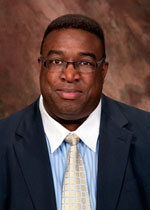by Bill McCoy, NIU College of Business
The Aug. 7 electronic publication of Bloomberg Businessweek reported:
Hewlett-Packard Co.’s Mark Hurd resigned as chief executive officer after an investigation found he had a personal relationship with a contractor who received numerous inappropriate payments from the company.
Interestingly enough, this sort of story used to conjure up salacious images in the minds of everyday citizens. We presumed the level of lies, deceit and manipulation was surely beyond that of ordinary people – while such stories figuratively left the taste of “soap” (as in soap opera) in our mouths. That was in times past. Now, such dastardly deeds are so commonplace, we seldom wince at it anymore as we think, “Doesn’t everyone in those sorts of positions do that kind of stuff?”
After reading such an article, some brazenly reject the notion that Hurd did anything wrong. After all, who he sees and what he does shouldn’t matter as long as it doesn’t affect his performance at work, right? Others solely focus on the inappropriate payments the contractor received from the company and make assumptions about the supposed connections between Hurd and the contractor; either way, there is a core issue that must be addressed. It is an issue that every student at NIU needs to consider: given the same opportunity, what would I do?
The report in Bloomberg Businessweek goes on to say:
… While an investigation didn’t find a violation of the company’s sexual-harassment policy, Hurd “demonstrated a profound lack of judgment that seriously undermined his credibility and damaged his effectiveness in leading HP,” General Counsel Michael Holston said.
So, even though Hurd was not found guilty of violating the corporation’s harassment policy, he was deemed guilty of poor judgment that negatively affected both people’s trust in him and his ability to effectively lead the company. All of that fall-out resulted from occasional “side meetings” and a “you scratch my back and I’ll scratch yours” mentality? Wow!
When it is all said and done, the real issue here is about ethics. Webster defines ethics as “a set of moral principles or values; the principles of conduct governing an individual or a group.” Tough decisions that primarily deal with ethics are made everyday from the board room to the classroom. It is easy to see the wrong of a corporate executive making six figures or more. Many jokes were birthed out of the Madoff scandal, but each of us will have a day of reckoning to deal with – a day to do what is right or to do what is easy and/or convenient.
Northern Illinois University is fortunate to have an initiative within the College of Business (COB) designed to infuse ethics throughout the entire college. The BELIEF Initiative (Building Ethical Leaders using an Integrated Ethics Framework) was started in 2004 with the intent of producing leaders with a conscience. Such a mission will never be easy to fulfill as long as the media glamorizes conscience-less individuals, but NIU-COB is meeting the challenge head-on and becoming the ethical light in an increasingly dark corporate world.
The question now lies with you. What will be your choice when faced with an ethical dilemma that is as sure to happen as the change of seasons? Will you be a salacious headline or an ethical sidebar? For your sake – please choose the sidebar.
Bill McCoy is director of the BELIEF Initiative in the NIU College of Business.

